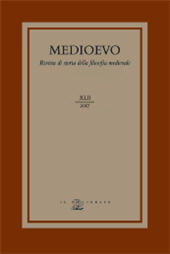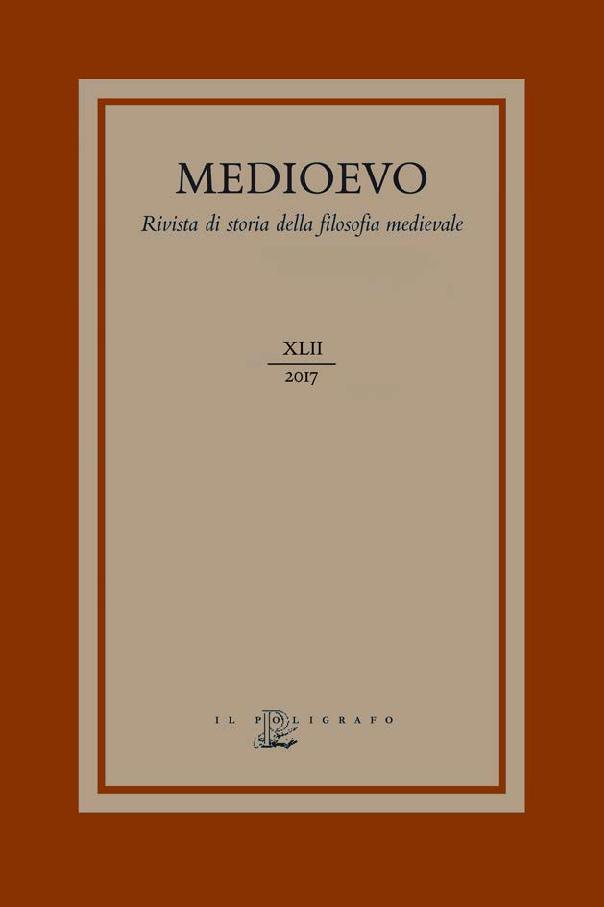What is the Advantage of Knowing the Future? : Some Comments on Ptolemy's Tetrabiblos, I, 3.
31-55 p.
In the Introduction of the Tetrabiblos (I.3) Ptolemy defends astrology against critics who claim that knowing the future is useless. Why should we want to know what will happen if we cannot change the outcome? Ptolemy first insists that most events predicted in astrology do not follow with absolute necessity from the celestial configurations, and, even if some happen with ineluctable fatality, it is not superfluous to know them in advance, as this knowledge prepares us to accept what happens with "peace of mind". In this defence of the utility of astrology Ptolemy seems to be influenced by the Stoic practise of the "premeditatio malorum". In the second part I show how Albert the Great and Thomas Aquinas use Ptolemy's argument to reject all forms of astrological determinism. In the third part I turn to Albumasar who in his Introductorius I, ch. VI, offers a lengthy reply of people who reject astrology as a superfluous occupation.
He is clearly inspired by Ptolemy's arguments, yet adds at the end an argument destined to convince the "common crowd": most people reject knowledge of the future because it might remove what makes our present life pleasurable (as the Epicureans argued). However, Albumasar shows that there are even hedonistic reasons to be interested in knowing the future events, even if they are not pleasurable. In an epilogue some comments are made on Dante's curiosity to know what will happen in his future life (Paradiso XVII). [Publisher's text].
Nell'Introduzione al Tetrabiblos (I.3) Tolomeo difende l'astrologia da chi pretende che la conoscenza del futuro sia inutile. Perché dovremmo voler conoscere cosa accadrà, se non possiamo evitarlo? La maggior parte degli eventi predetti attraverso l'astrologia, insiste Tolomeo, non dipendono con assoluta necessità dalle configurazioni celesti, e se qualcosa avviene con ineluttabile fatalità, non è inutile saperlo in anticipo, dal momento che tale conoscenza ci preparerà ad accettare ciò che accade con "serenità". In questa difesa dell'utilità dell'astrologia Tolomeo sembra essere influenzato dalla pratica Stoica della "premeditatio malorum". Nella seconda parte del mio contributo mostrerò come Alberto il Grande e Tommaso d'Aquino ricorrano ad argomenti presi da Tolomeo per rifiutare ogni forma di determinismo astrologico. Nella terza parte tornerò su Albumasar, che nel suo Introductorius I, capitolo VI, offre una lunga risposta a coloro che respingono l'astrologia come una superflua occupazione.
Albumasar è chiaramente ispirato dalle argomentazioni di Tolomeo, ma alla fine aggiunge un argomento destinato a convincere la "gente comune": la maggior parte rifiuta la conoscenza del futuro perché potrebbe portare all'eliminazione di ciò che rende piacevole la vita presente (come sostengono gli Epicurei). Tuttavia Albumasar dimostra che esistono anche ragioni di tipo edonistico per essere interessati a conoscere gli eventi futuri, anche quando questi non sono piacevoli. In conclusione un esempio dell'irriducibile desiderio dell'uomo di conoscere il proprio futuro: Dante, Paradiso XVII. [Testo dell'editore].
-
Artikel aus derselben Ausgabe (einzeln erhältlich)
-
Informationen



